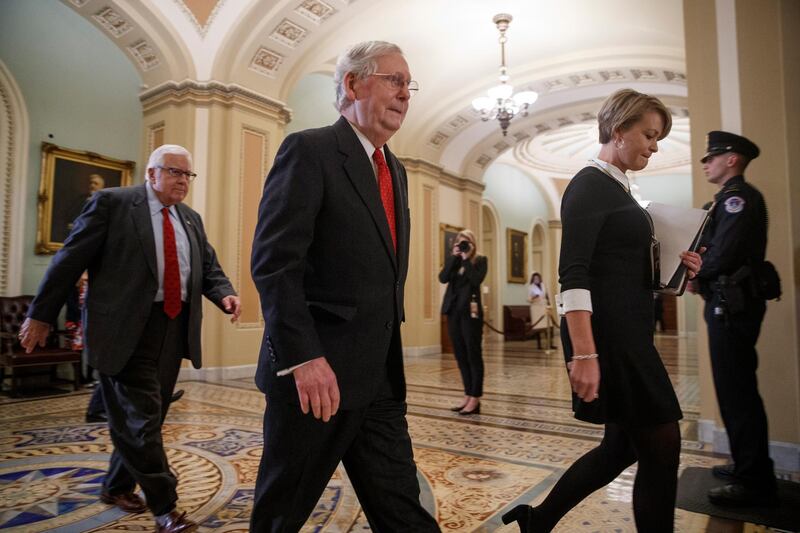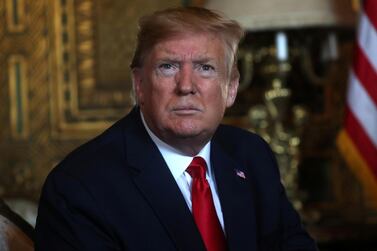The first two days of President Donald Trump's impeachment trial, and a rushed schedule by the Senate Republican majority leader Mitch McConnell reflected a deep partisan divide in the Senate.
Mr McConnell has been accused of trying to end the process in two weeks.
On Tuesday, what was expected to be a two-hour vote on the resolution outlining the rules of the trial went well beyond midnight and passed with 53 Republicans voting for, and 47 Democrats against.
The marathon session reflected Mr McConnell’s grip on the trial, and his ability to keep the Republicans in line, effectively putting down 11 amendments proposed by the Democrats.
Those bids by the Democrats included subpoenas for White House witnesses and documents that relate to the President’s alleged role in pressuring Ukraine to investigate Democratic presidential frontrunner Joe Biden.
The Republican majority voted to block these subpoenas.
Mr Trump defended the Republicans' rejection of attempts to force former national security adviser John Bolton and others to testify at his trial, saying Mr Bolton's testimony would present a "national security problem".
"John, he knows some of my thoughts," Mr Trump said. "He knows what I think about leaders. What happens if he reveals what I think about a certain leader and it's not very positive?"
On Wednesday, arguments from Democrats were expected to be heard for 24 hours across two days, followed by two days for the White House to respond.
After that, 16 hours are allocated for questioning from senators and all the sessions will be presided over by US Chief Justice John Roberts.
From there, the trial will debate the question of witnesses and who would appear publicly or in closed sessions. The Republican leadership has resisted an open session.
After that debate, the senate would vote on whether to charge Mr Trump as guilty and remove him from office, or acquit him.
A guilty charge is unlikely since it would require two thirds of the Senate to vote in favour.
The Democrats are trying to lure moderate Republicans, such as senators Susan Collins and Mitt Romney, to their side but they do not have the two thirds to remove Mr Trump at this stage.
But Mr McConnell gave some concessions to Democrats on Wednesday. One was for increasing the time for opening arguments, and another was to allow evidence gathered by the House of Representatives to be entered on the record.
Mr McConnell is looking for a quick conclusion for the trial before the State of the Union address on February 4. Republicans also do not want the process dragging into the election season that starts in Iowa on February 3.
Polls have shown a deep divide among the American public over the trial. One last week by Politico and Morning Consult found 47 per cent of voters in favour of Mr Trump’s removal, and 45 per cent opposed.
But more than three in four Americans support having witnesses at the trial, the Monmouth poll suggested.
The impeachment trial is happening under strict rules whereby senators are not allowed to take in their phones or any device, and may drink only water or milk.
The process has kept Democrats in the Senate running for President, such as Bernie Sanders, Amy Klobuchar and Elizabeth Warren, away from the battleground state of Iowa, two weeks before it votes.
Mr Sanders cancelled a rally this week, while Ms Klobuchar sent her family and surrogates to campaign on her behalf.








